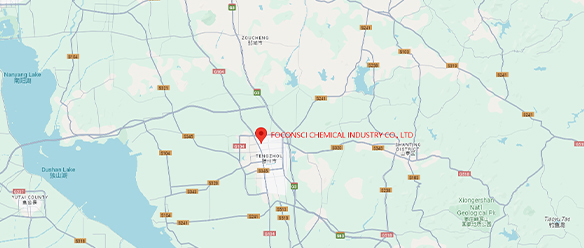Choline Chloride Applications in Feed, Pharma & Energy (2025 Guide)
Choline chloride (CAS 67-48-1) is a widely used water-soluble quaternary ammonium salt. As one of the common forms of choline, it is not only an important component of vitamin B complex (also known as vitamin B4), but also plays a key role in multiple industrial chains.

I. Feed industry: Choline chloride as the main product of functional feed additives
1.1 Essential choline nutrients in poultry feed
Choline chloride is classified as a functional feed additive and is commonly used in compound feeds such as laying hens, broilers, pigs, and cattle. As a methyl donor, it helps:
Prevent fatty liver and promote liver health;
Enhance animal immunity;
Improve feed conversion rate and improve the economic benefits of breeding.
According to "Choline Chloride Market Research Report (2025)", the annual consumption of choline chloride will exceed 850,000 tons in 2024. During the forecast period (2025-2034), the compound annual growth rate of the choline chloride market is expected to be about 7.80%, of which feed grade usage exceeds 50%.
1.2 Metabolic regulators in aquaculture
In aquatic animals such as white shrimp, tilapia, and carp, choline chloride can relieve stress response and promote lipid metabolism in the body. It can also be used in combination with complex amino acid nutrients such as lysine and methionine to enhance feed absorption efficiency.
II. Agricultural field: as a plant growth regulator and foliar nutrition synergist
Choline chloride is gradually becoming an important component of plant regulators and agricultural synergists, especially for field crops such as corn, wheat, rice, and soybeans.
Enhance the absorption rate of nutrients by crops;
Delay leaf senescence and improve photosynthesis efficiency;
Often used in combination with herbicides such as 2,4-D and chlorpyrifos methyl to act as a stabilizer.
Research data show that in field trials using choline chloride and plant growth hormone, corn dry matter accumulation increased by 9.8%~14.3%, and yield increased significantly.
III. Nutrition and pharmaceutical industry: Choline chloride is an important member of the vitamin B group
3.1 Key choline source in human health
Choline chloride is also known as vitamin B4 and is often used as a nutritional fortification factor in vitamin B group (such as B1, B2, B6, B12, etc.) compound supplements. Its functions include:
Maintaining normal function of the brain and nervous system;
Participating in fat metabolism and liver function maintenance;
Particularly important during pregnancy, it helps the fetal brain development.
Recommended daily intake (AI):
Adult women: 425 mg/day
Adult men: 550 mg/day
Pregnant women: 450–550 mg/day (according to US NIH data)
3.2 Intermediates and excipients in the pharmaceutical industry
Choline chloride is widely involved in the synthesis of choline ester drugs, such as acetylcholine and its analogs, which are used to treat Alzheimer's disease, hepatitis and fat metabolism disorders.
IV. Petrochemical field: auxiliary active agent for shale fracturing fluid
In recent years, choline chloride, as an environmentally friendly auxiliary agent, has been used as a fracturing fluid modifier, surfactant or dispersant in shale oil and gas production, with the following advantages:
Reduce liquid interfacial tension and improve permeability;
Synergize with surfactants to promote effective sand transportation;
Improve the cleanliness of the fracturing fluid system and reduce equipment scaling.
Choline chloride-alcohol compound system is being tried by multiple shale fields to replace traditional amine demulsifiers.
V. New Energy and Green Chemical Industry: DES Solvent and Battery Material Development
Choline chloride has been widely studied in recent years for the preparation of deep eutectic solvents (DES), which is a new material that replaces traditional organic solvents.
It is eutectic with low-cost materials such as urea and glycerol to form a low-volatile, low-toxic green solvent;
It is widely used in the preparation of new materials such as battery electrolytes, electroplating solutions, and electrolytic deposition;
DES systems are also used as metal extracts and CO₂ absorbers.
This type of choline chloride-based DES is on the rise in new energy battery research, especially in aluminum ion and zinc ion battery projects, showing excellent electrochemical stability.
VI. Application scenarios in other industries
Leather and textile industry: as a dye additive, softener or antistatic agent;
Daily chemical industry: as a moisturizer and pH regulator in shampoo, conditioner, and skin care products, and the application must meet relevant toxicological standards;
Papermaking and printing industry: as a lubricant dispersant, sizing stabilizer, etc.
Conclusion: Choline chloride - a model of cross-industry general raw materials

The application of choline chloride is no longer limited to the feed industry. It is gradually becoming a multifunctional, cross-industry, high-value basic raw material. Whether it is traditional nutrition products, crop planting, or new energy and chemical manufacturing, choline chloride has shown excellent adaptability and value potential.
As a professional chemical manufacturer and supplier, Foconsci Chemical Industry supplies choline chloride in batches with multiple specifications based on the needs of different customers, and can provide customized packaging.


 EN
EN
 AR
AR
 BG
BG
 HR
HR
 CS
CS
 DA
DA
 NL
NL
 FI
FI
 FR
FR
 DE
DE
 EL
EL
 HI
HI
 IT
IT
 JA
JA
 KO
KO
 NO
NO
 PL
PL
 PT
PT
 RO
RO
 RU
RU
 ES
ES
 SV
SV
 TL
TL
 IW
IW
 ID
ID
 LV
LV
 LT
LT
 SR
SR
 SK
SK
 VI
VI
 HU
HU
 TH
TH
 TR
TR
 GA
GA
 CY
CY
 KA
KA
 LA
LA
 MN
MN
 KK
KK
 LB
LB


